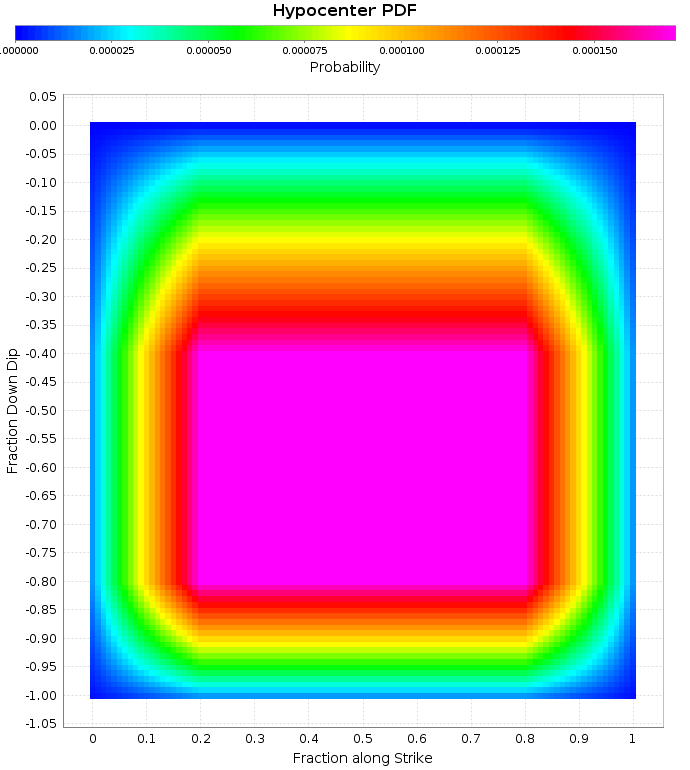Difference between revisions of "CyberShake Tapered Hypocenter Implementation"
(Created page with '= Motivation = CyberShake Study 15.4 uses the Graves and Pitarka (2015) rupture generator with a uniform hypocenter distribution, including multiple rows of hypocenters down dip…') |
|||
| Line 10: | Line 10: | ||
Here is the resultant probability density function (PDF) | Here is the resultant probability density function (PDF) | ||
| − | [File:CyberShake_15_4_Hypocenter_pdf_theoretical.png] | + | |
| + | [[File:CyberShake_15_4_Hypocenter_pdf_theoretical.png]] | ||
Revision as of 23:33, 26 May 2015
Motivation
CyberShake Study 15.4 uses the Graves and Pitarka (2015) rupture generator with a uniform hypocenter distribution, including multiple rows of hypocenters down dip. Thus far we have weighted all CyberShake rupture variations equally. This page documents efforts to modify these hypocenter probabilties, reducing probabilities of hypocenters at the edges of the fault. This is similar to the weighted random calculation done by Graves and Pitarka (2015) when random hypocenters are enabled.
Tapered Hypocenter PDF
We apply a taper as follows:
Taper the first and last 20% along strike, starting with 10% weight at each edge. Taper the top (shallowest) 40% and bottom (deepest) 20% of the fault, starting with 1% weight at the top and 10% on the bottom.
Here is the resultant probability density function (PDF)
